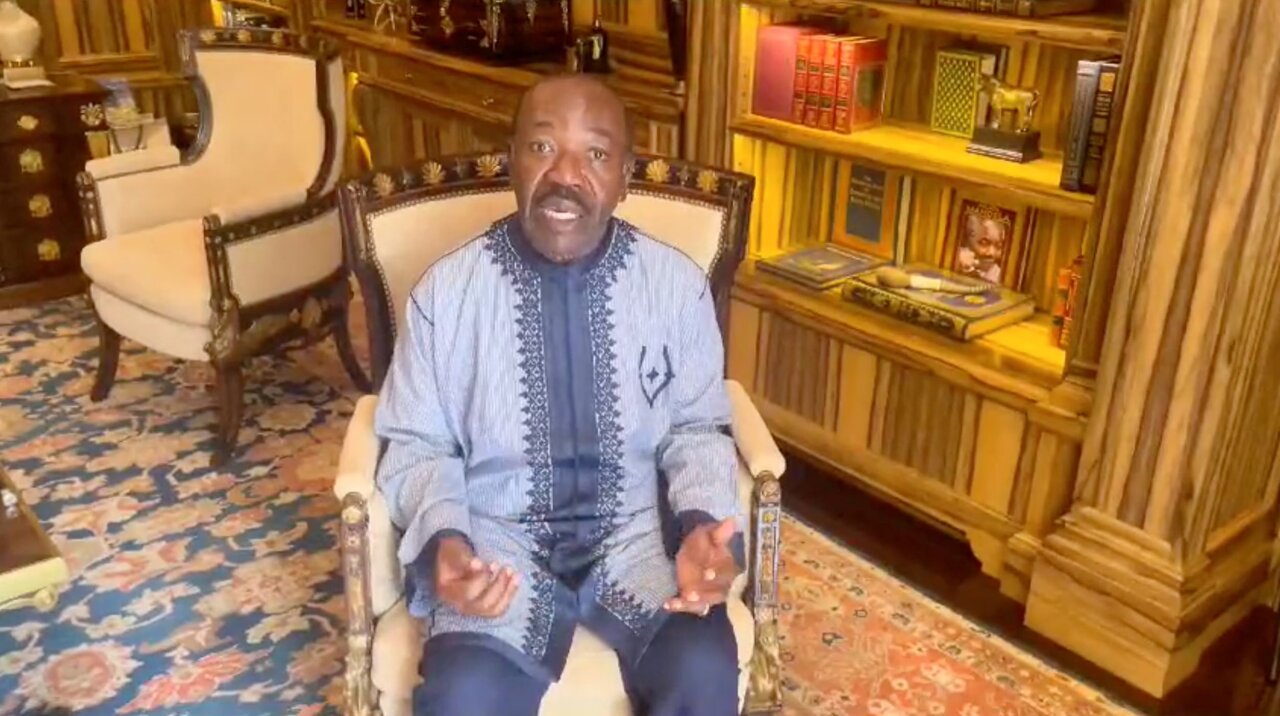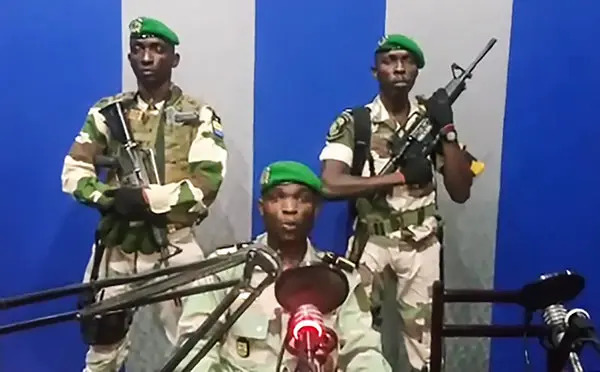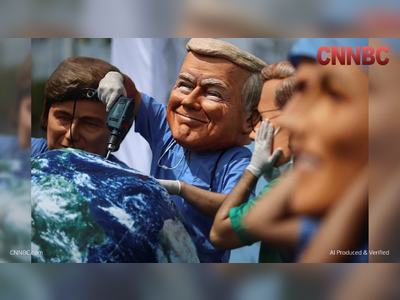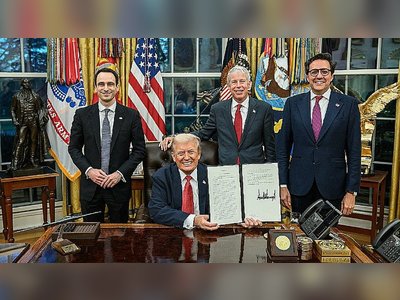Coup in Africa: Officers Announce on State TV That Elections Are Halted — “The President Has Been Removed”
Soldiers in Guinea-Bissau seized state television, declared the president deposed, closed the borders, and suspended the election process just one day before preliminary results were due.
A group of military officers in Guinea-Bissau announced this evening on state television that they had taken power, suspended the ongoing election process, and removed President Umaro Sissoco Embaló from office.
The declaration came just one day before the national election commission was expected to release preliminary results from Sunday’s presidential vote, a contest in which both Embaló and his main challenger, Fernando Dias, claimed victory.
Embaló himself confirmed the news in an interview with France 24, saying, “I have been deposed”.
Gunfire was heard earlier in several parts of the capital, Bissau, including near the presidential palace.
Shortly afterward, uniformed officers appeared on television announcing that the borders were now closed, elections suspended, and a “Supreme Military Command for the Restoration of Order” had been established to run state affairs until further notice.
They claimed the coup was a response to uncovering “a continuing plot to destabilize our country,” allegedly involving both local citizens and foreign actors.
Witnesses reported sustained bursts of gunfire near the palace, the Interior Ministry and the headquarters of the national election commission.
Soldiers were seen taking control of the main avenue leading to the palace, erecting roadblocks, and manning newly established checkpoints.
A correspondent for the Associated Press reported that access roads in the area were sealed off.
Several media outlets ceased broadcasting following the announcement.
For now, it remains unclear what political orientation the coup leaders represent.
Associates of Dias emphasized that he had no involvement, noting that at the time of the coup he had been meeting with election observers when people burst into the room warning of gunfire downtown.
Dias was unharmed and remains in Bissau.
Guinea-Bissau has long been prone to political upheaval.
Since gaining independence from Portugal in 1974, the country has suffered four successful coups and numerous failed attempts, including one just last month.
Embaló, removed from office today, has claimed he survived at least three coup attempts since taking power in 2020.
His critics, however, accuse him of exaggerating or inventing crises to justify harsh crackdowns on political rivals.
As night fell, the streets of Bissau were largely deserted — a familiar scene in a country where power struggles repeatedly erupt into uncertainty.
For the people of Guinea-Bissau, the cycle of instability continues, once again reshaping their nation’s fragile democratic landscape.
The declaration came just one day before the national election commission was expected to release preliminary results from Sunday’s presidential vote, a contest in which both Embaló and his main challenger, Fernando Dias, claimed victory.
Embaló himself confirmed the news in an interview with France 24, saying, “I have been deposed”.
Gunfire was heard earlier in several parts of the capital, Bissau, including near the presidential palace.
Shortly afterward, uniformed officers appeared on television announcing that the borders were now closed, elections suspended, and a “Supreme Military Command for the Restoration of Order” had been established to run state affairs until further notice.
They claimed the coup was a response to uncovering “a continuing plot to destabilize our country,” allegedly involving both local citizens and foreign actors.
Witnesses reported sustained bursts of gunfire near the palace, the Interior Ministry and the headquarters of the national election commission.
Soldiers were seen taking control of the main avenue leading to the palace, erecting roadblocks, and manning newly established checkpoints.
A correspondent for the Associated Press reported that access roads in the area were sealed off.
Several media outlets ceased broadcasting following the announcement.
For now, it remains unclear what political orientation the coup leaders represent.
Associates of Dias emphasized that he had no involvement, noting that at the time of the coup he had been meeting with election observers when people burst into the room warning of gunfire downtown.
Dias was unharmed and remains in Bissau.
Guinea-Bissau has long been prone to political upheaval.
Since gaining independence from Portugal in 1974, the country has suffered four successful coups and numerous failed attempts, including one just last month.
Embaló, removed from office today, has claimed he survived at least three coup attempts since taking power in 2020.
His critics, however, accuse him of exaggerating or inventing crises to justify harsh crackdowns on political rivals.
As night fell, the streets of Bissau were largely deserted — a familiar scene in a country where power struggles repeatedly erupt into uncertainty.
For the people of Guinea-Bissau, the cycle of instability continues, once again reshaping their nation’s fragile democratic landscape.













